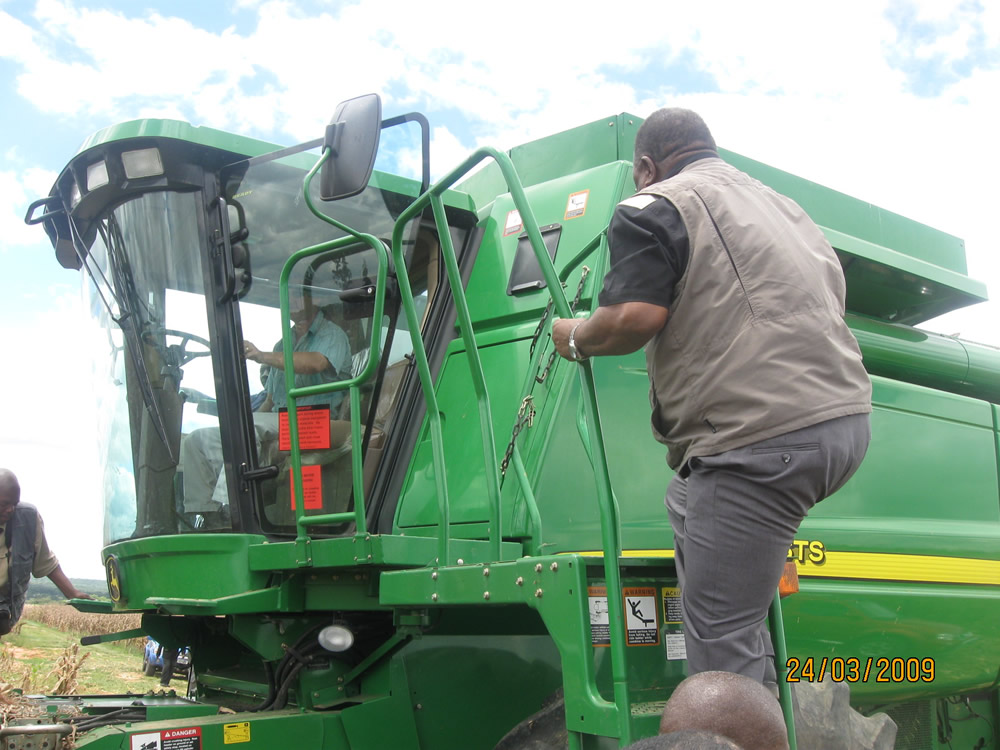
Lubosi Imwiko II

.jpg)
The Litunga and his queen back then in 2000
During the time of King Lubosi Imwiko II, the issue of Barotseland has taken another twist. People are disappointed with the Zambian government's handling of the issue. The government has zero tolerance of those who publicly talk about the issue. Many have been arrested without trial as was the case with everysuccessive president in the past, maimed, tortured and killed some, violating human rights ordinances.
Zambia has completely failed to cooperate in resolving this in a civil manner. Yet there was no reason to fight over since Barotseland joined Northern Rhodesia in 1964 to obtain independence willingly through the BA64. It was Zambia that defaulted by abrogating the treaty, thus creating a state of confusion since 1969. In 2012 the people of Baotseland stood upto Zambia through the BNC and declared independence of Barotseland from Zambia. It is just a matter of time the process of disngagement is underway, even though Zambia is still occupying Barotseland illegally. If Zambia is still in shock of disbelief they will need to have a referandum to ensure that indeed this is what they people have decided to do or not.
The majority of the people of Barotseland would like to see Barotseland completely independent from Zambia. But the BRE is still limping behind desiring mere restoration of the BA64. click here. As soon as the BRE and the Litunga catch up with the will of the people the government of Zambia will hear one voice only, and that will bring the issue to an expected end.
Kuomboka 2009
March 1963 - Hon. Joun Vamieson Burnside, a member of the Northern Rhodesian Parliament made the following clarification in parliament: (Not suggesting the Lozi are super human or anything like that, but nation status)
“Barotseland has a special and particular place in the scheme of things in Northern Rhodesia. The Lozi are a people, they are a Nation, they are not one of many, many small groups that one reads in the appendices to government reports which involve tribes. The Barotse are a nation……
May 1964 - The Barotseland Agreement 1964 was reached and signed in London as a prelude to Zambian independence. The Agreement transferred all the obligations and rights contained in treaties and concessions between the British government and Barotseland to the new State of Zambia. Section 8 of the Agreement did not empower the legislature of Zambia to legislate for Barotseland, laws which were inconsistent with the provisions of the Agreement.
August- Dr. Kenneth Kaunda, Prime Minister of Northern Rhodesia later addressed the Barotse National Council on 6th August 1964 concerning the Barotseland Agreement which was to come into force on 24th October 1964.
(a) That it is the government’s full intention that the Barotseland Agreement will be honoured fully after independence.
(b) That the government has no wish to interfere with the day to day running of the internal affairs of Barotseland. This is the responsibility of the Barotse government and the intention of the Central Government will be no more than to give the Barotse Government its maximum assistance and co-operation.
(c) That the customary rights in Barotseland will remain with the Litunga, National Council and the District heads of Kutas. He added that “the government is satisfied that government requirements for land for development projects in Barotseland will receive the active co-operation of the Barotse government, this is all the Central Government is asking for…..”
Sept 1964- Kaunda wrote to the Litunga in which he stated his Government’s commitment to honour the Agreement saying that: “the 1964 Agreement was the result of careful discussion and consultation between Her Majesty’s government, the government of this country and yourself and that it would be inappropriate to re-open discussions after all the parties had signed the Agreement in acceptance. I think we should all now concentrate on the implementation of the Agreement in the spirit with which it was made.” It was never implemented.
October 1965 Government published a statutory instrument abolishing the Barotse National Council setting up the five-district councils in Barotseland and announced the names of the nominated members.


Additional links on this topic:
|